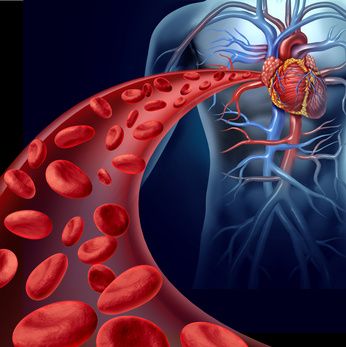Subscribe to the Newsletter
If you are interested in understanding how Traditional Chinese Medicine can improve your life sign up to my newsletter for the latest updates.

In Chinese medicine, your Heart functions are far more than just pumping blood round your body.
In fact, your blood doesn’t become Blood (Capital B) until it leaves the Heart-pump!

Understand your Heart functions and you’ll realise how it affects your aims in life and your personality. You’ll also see what may affect it adversely and possibly, if not sorted out, may lead to long-term problems.
Further down, once you’ve read about the ‘functions’, you can click on some of the important syndromes to read more. These syndromes are the way Chinese medicine explains how your pump is malfunctioning. They also suggest what to do to help yourself and what treatments may help.
For more on the underlying thinking behind all this, click on TCM theory.
By the Mind (the word used is ‘Shen’) the Chinese meant the spirit, in the sense of the spiritedness of the individual, his vigour, his personality.
They did not mean how clever you were, or your Soul. So the concept of Shen – Mind – is more like the consciousness of the individual, which of course includes the emotional state.
If there is plenty of Blood and the Heart functions vigorously, then so will the individual, with a definite personality, effective memory and perceptive thinking.
If Blood is deficient, then the individual will have a weaker personality, poor memory, clouded thinking and probably will not be happy or confident.
The Blood, governed by the Heart, is where the personality resides. When someone is in shock, say from blood loss, you can see their personality ‘going to pieces’.
In Chinese medicine, the Heart has an important role in making Blood. In fact only after the red liquid (blood), having picked up oxygen from the lungs, has passed through the Heart and been given motion, is it considered to be Blood. Until that point, it is merely a red liquid, occupying space.
As in Western medicine, a poor supply of Blood signifies a lowered health level, with less ability to think, (because the brain needs blood), to heal, to mend injuries, to menstruate, and poorer circulation, especially to the hands.
If you have ever seen someone seriously haemorrhaging, perhaps from a wound, you will recognize the signs of shock.
As the quantity of blood depletes, the heart pumps faster and more violently to preserve blood vessel pressure. The individual goes white and dizzy, sweats, palpitates, panics, and eventually loses consciousness.
(By the way, just compare that to the symptoms of deficiency of Qi, which also has weakness and tiredness, lowered spirits and vitality, but not necessarily pallor. Qi deficiency won’t kill. Blood loss can.)
Eventually, if too much blood is lost and transfusion is not possible, the heart fails. At that point, dying starts.
Heavy Blood loss and Heart failure both lead to death.
The ancient Chinese made much of this connection between Heart, Blood and life.
This Energy Organ is in the Fire element in the Five Element or Five Phase system.
Over-excitement, mania, restlessness and similar states are signs of the Mind being over-stimulated by Qi stagnation turning to Heat.
When Qi stagnation disturbs an Energy Organ, Wind and Heat are often created. With the Heart, these can ‘attack’ upwards, disturbing its ‘descending’ and other functions.
This Energy Organ is said to hate Heat, for example climactic heat, e.g. a hot desert, intense heat in summer: also the heat of a sauna if you stay in it too long, or working too close and too long next to an open oven or furnace. (In the past, bakers and stokers, both of whose jobs put them into close proximity with fire, often suffered from signs of Heat, for instance by having hot rashes on their face and hands.)
These may, in susceptible individuals, create Heat in the Heart.
Tongue pain (especially at the tip), tongue ulcers, frequent sticking out of the tongue, serious biting of the tongue, loss of taste, extreme dryness, strong bitter taste all point to the Heart being out of balance.
The Heart also controls sweating. Sweat is a body fluid and its source is your Blood. When the Heart’s control of Blood fails, as in shock, you may not just feel dizzy but find yourself sweating profusely.
Excess perspiration can debilitate the Heart.
Other organs (zangfu) help keep the Heart in order. For example, the Liver and the Lungs. To an extent, they can make up for Heart deficiency.
When we help someone who is anxious to calm down we talk soothingly, reassuringly, and we tell him he will be OK: we want him to calm down. If our comforting words do calm him his Heart can continue to send Qi downwards.
My pulse slows down as I relax and speeds up when I panic or get over-excited. When Heart energy travels the wrong way, we get anxious, panicky, nervous, frightened. We get insomnia and find sleep difficult or impossible, and we may feel nauseous. If Heart Qi ascends instead of descending, you get what people describe as ‘My heart in my mouth!’
Women suffering from Heart energy ascending rather than descending find that their menstrual cycles are delayed or even stopped.
Female athletes sometimes stop having periods, or have much shorter periods, partly because the heartbeat is so often raised or is raised so intensively. (However, there are many other reasons in Chinese medicine for amenorrhoea, the lack of monthly periods.)
Allowing our cows to canter instead of walk would over-excite them and disturb their milk production.
Natural female Yin functions such as making milk, monthly menstrual periods and carrying a foetus can be perturbed by the heartbeat going too fast, especially if due to shock, panic or anxiety, when the Shen is disturbed.
There is another reason for this, in fact several. Because it controls or governs Blood, a disturbed Heart may be unable to send menstrual blood downwards at the appropriate time.
Of course, some sportswomen, and others, do not eat enough for their needs so their bodies do not make sufficient blood for regular periods. However, if insufficient blood were the problem they would probably have other symptoms, like coldness and faintness.
Another Heart function, to some extent shared with other zang-fu organs, relates to sexual organs and energy.
If your Heart energy fails to descend at the appropriate time,

Our Hearts give us away!
So if treating someone for impotence or frigidity, or loss of sensation or enjoyment, an acupuncturist has to think of the Heart.
Because it ‘governs’ so many matters on the emotional level, treatment may need to be through talking and explanation, even counselling, as well as with acupuncture/herbs.
The aim might be, for instance to –
Although protected by all the other Zangfu Energy Organs, particularly the Pericardium, the Heart does suffer from various syndromes in Chinese medicine.
Here are some of the main ones – click to read more.
Heart …
For another site with good advice (but be aware the site is from an American insurance company!)

Stay in Touch!
No spam, only notifications about new articles and updates.

Book a Video consultation if you want to know more about your symptoms

This Introductory Chinese medicine course introduces you to the amazing thinking behind this ancient medicine, now increasingly in demand.

The Scottish College for Chinese medicine provides introductory courses for all, explaining Chinese medicine and its cultural background.

Master Tung’s acupuncture is a hidden treasure, lost to China but recovered in Taiwan from where it spread round the world.

Knee pain has five main causes. It’s certainly worth trying acupuncture before you resort to surgery!
Subscribe to the Newsletter
If you are interested in understanding how Traditional Chinese Medicine can improve your life sign up to my newsletter for the latest updates.
Subscribe to the Newsletter
If you are interested in understanding how Traditional Chinese Medicine can improve your life sign up to my newsletter for the latest updates.